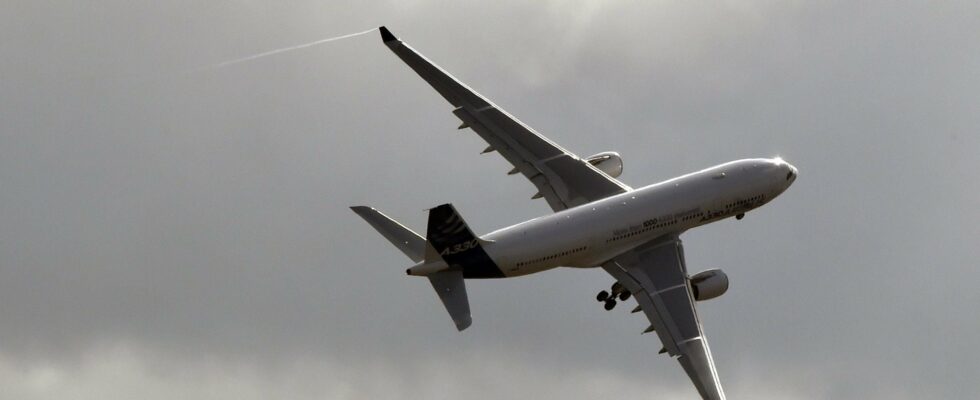The impact of war in Ukraine is not only economic and societal, it is also ecological. A study, published by Earth & Environment Communications Wednesday, February 12, measured the climatic consequences due to the modification of the air traffic caused by the conflict. The result is an increase, evaluated at 1 %, from global carbon dioxide emissions from the airline in 2023.
Following the Russian invasion in Ukraine, launched on February 24, 2022, the airlines were no longer allowed to fly over the Russian airspace, anxious not to relive the fate of flight MH17, shot down above of Ukraine in July 2014. In this context, planes were forced to take longer routes, between Europe or North America and East Asia, pushing them to consume more fuel. According to the study, “these detours caused by the war in Ukraine led planes to consume on average 13 % additional fuel compared to their initial routes”.
An increase in fuel consumption which, however, differs according to the routes followed. According to researchers from the Pierre-Simon Laplace Institute (Sorbonne University/École Polytechnique/UVSQ) The increase in consumption is estimated at 14.8 % for flights between Europe and Asia while those connecting the North America in Asia experienced an increase, certainly lower, but still significant, of 9.8 %.
The impact of other conflict zones in the world
For Nicolas Bellouin, professor detached by the University of Reading at the Pierre-Simon Laplace Institute and co-author of this study, the flights concerned by the detours are around 1,100 per day: “”The additional distance they travel has a significant impact on the overall carbon footprint of aviation. These detours added 8.2 million tonnes of CO2 to global aviation emissions in 2023.“Data that does not reassure ecological consciences, especially since air traffic is increasing – the association of international air transport IATA estimates that it will increase by 6.7 % this year compared to 2024 – which may increase the number of detours.
Ukraine is not the only theater of conflict in the world and the effects of war on air traffic can extend to other countries. In this study, researchers also examined air restrictions above Libya, Syria and Yemen. They found that, in these countries, 60 to 100 flights were affected every day.
For planes avoiding the Libyan airspace, the increase in the fuel consumed is 2.7 %, while those bypass Syria recorded a 2.9 %increase. Detours around Yemen have a slightly greater impact, planes consuming 4.3 % more fuel. However, for these countries, their repercussions on global CO2 emissions linked to aviation are not comparable to the Ukrainian case, since they remain less than 0.2 %.
